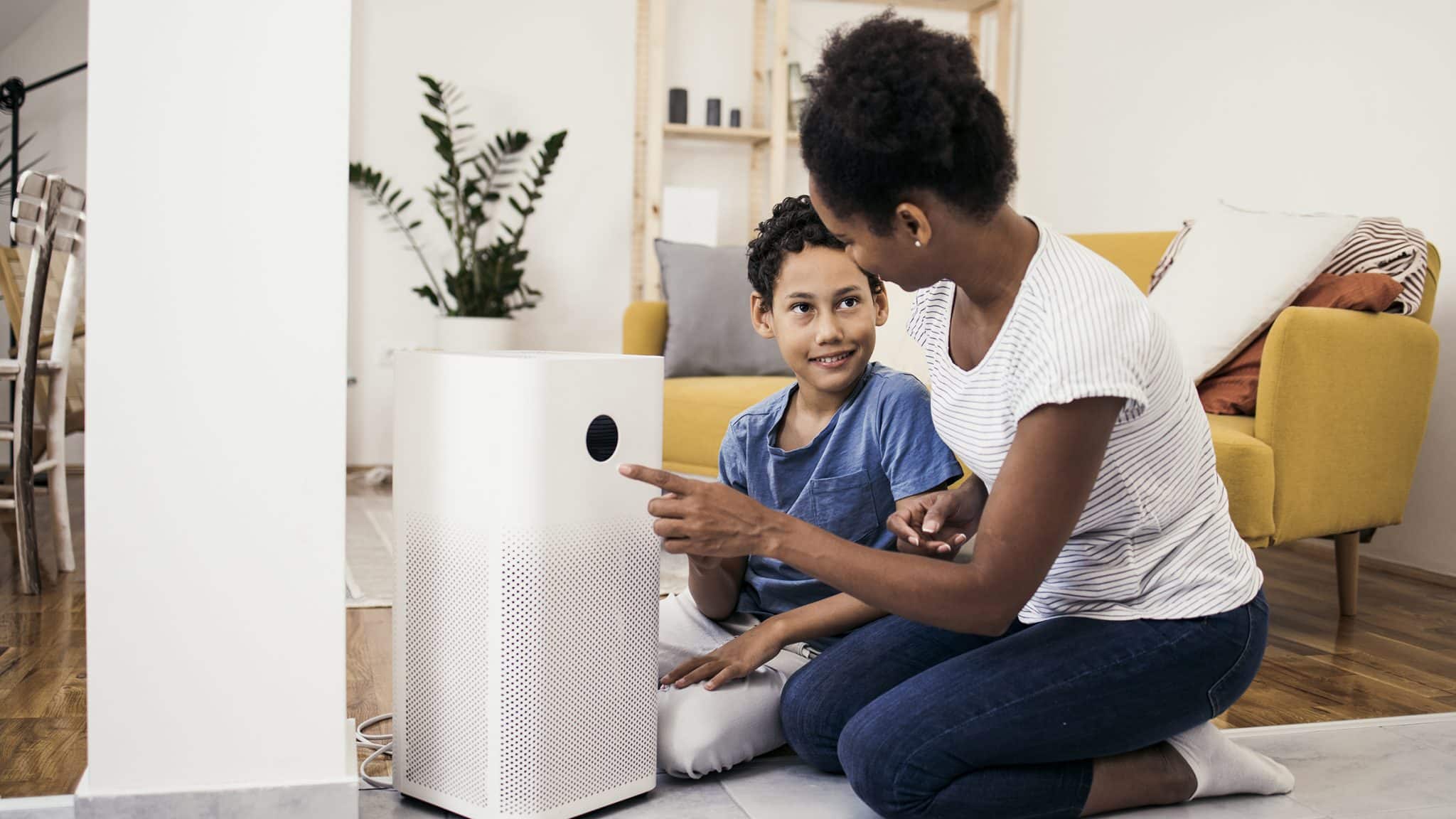Signs That You Need an Air Purifier in Your Home
Indoor air quality has never been more important than it is now. With the rise of air pollution, bacteria, and other allergens, it’s crucial to take the necessary steps to ensure that you and your family are breathing clean air. One of the best ways to achieve this is by investing in an air purifier. But how do you know if you really need one?
Suffering from Allergies or Respiratory Problems.
If you or your family members are frequently suffering from allergies or respiratory problems, such as asthma, it’s a good sign that your indoor air quality is not up to par. An air purifier can help remove the allergens and other air pollutants that trigger these problems, creating a healthier and more comfortable living environment.
You Live in An Area with High Levels of Air Pollution.
If you live in a city or an industrial area, you’re likely exposed to high levels of air pollution. An air purifier can help remove the pollutants and particulate matter from the air, reducing your risk of developing health problems associated with poor air quality.
You Have Pets or Live in A Home with Smokers.
Pet dander and cigarette smoke can seriously affect air quality in your home. Investing in an air purifier can help remove these pollutants, making the air cleaner and healthier for all occupants.
You’ve Recently Renovated Your Home.
Renovation work can stir up dust and other pollutants, leading to poor indoor air quality. An air purifier can help remove these pollutants, making your home a healthier and more comfortable place to live.
You’re Concerned About Viruses and Other Airborne Pathogens.
Viruses and other airborne pathogens can easily spread in confined indoor spaces. An air purifier with a HEPA filter can help capture these particles, reducing the risk of infections and illnesses.
How Does an Air Purifier Work?
Air purifiers work by pulling in air from the surrounding room and passing it through a series of filtration systems. These filters are designed to capture particles such as dust, pollen, pet dander, smoke, and other pollutants that can affect indoor air quality.
The first stage of filtration usually involves a pre-filter or carbon filter that captures larger particles like hair and visible dust. This is followed by a HEPA (High-Efficiency Particulate Air) filter, which can capture particles as small as 0.3 microns. Finally, some air purifiers also include an activated carbon filter to help remove odors and chemicals from the air.
The purified air is then released back into the room, creating a cleaner and healthier environment for occupants. Some air purifiers also have additional features such as UV lights or ionizers, which can help further remove bacteria and other harmful particles from the air.
In addition to improving indoor air quality, air purifiers can also have other benefits such as reducing allergy and asthma symptoms, improving sleep quality, and even enhancing overall well-being. Moreover, they can also help reduce the need for frequent dusting and cleaning in the home.
When choosing an air purifier, it’s important to consider factors like room size, type of filtration system, and maintenance requirements. It’s also essential to regularly clean and replace the filters according to the manufacturer’s instructions for optimal performance. Triad aer air purifiers don’t have HEPA filters, and they use photocatalytic oxidation and other technologies to clean the indoor air.
Benefits Of Air Purifier
Improves Overall Indoor Air Quality.
An air purifier helps to remove harmful pollutants and allergens from the air, improving the overall quality of the air in your home. This can lead to better respiratory health, less allergies, and a more comfortable living environment.
Reduces Odors.
Air purifiers have carbon filters that help eliminate unpleasant odors from pets, cooking, and other sources. This can lead to a fresher smelling home and a more pleasant living experience.
Helps with Allergies and Asthma.
Air purifiers with HEPA filters can capture tiny particles such as pollen, dust mites, and pet dander that can trigger allergies and aggravate asthma symptoms. Using an air purifier can provide relief for those who suffer from these conditions.
Removes Harmful Chemicals and VOCs.
Air purifiers with activated carbon filters can help remove harmful chemicals and volatile organic compounds (VOCs) from the air, improving indoor air quality and potentially reducing health risks associated with exposure to these pollutants.
Can Improve Sleep Quality.
Cleaner air can lead to better breathing, which can result in improved sleep quality. Air purifiers can help reduce snoring and alleviate symptoms of sleep apnea, resulting in a more restful night’s sleep.
Can Be Beneficial for Those with Respiratory Conditions.
For individuals with respiratory conditions such as COPD or cystic fibrosis, an air purifier can provide cleaner air to breathe, reducing the risk of complications and improving overall respiratory health.
Can Protect Against Secondhand Smoke.
Air purifiers can help remove harmful pollutants from cigarette smoke, making it a valuable tool for those living with smokers or in areas where secondhand smoke is prevalent.
Can Be Used in Any Room.
Air purifiers are compact and portable, allowing them to be used in any room of the house. This makes it easy to target specific areas where air quality may be a concern, such as the bedroom or living room.
Can Help Reduce Household Odors.
In addition to removing pollutants and allergens, some air purifiers also can neutralize unpleasant odors from cooking, pets, and other sources. This can lead to a fresher smelling home and a
In conclusion, if you’re experiencing any of these five signs, it’s time to consider investing in an air purifier. Not only will it help improve your indoor air quality, but it can also lead to numerous health benefits, including a reduction in allergies and respiratory problems. By investing in an air purifier, you’re making a smart investment in both your long-term health and the health of your loved ones.







